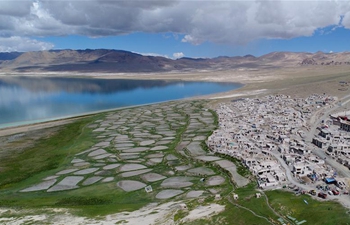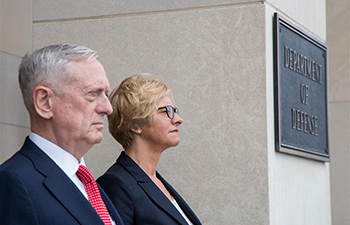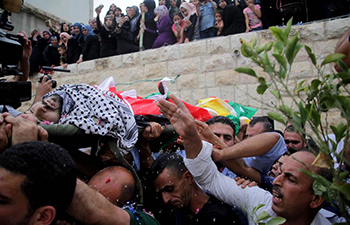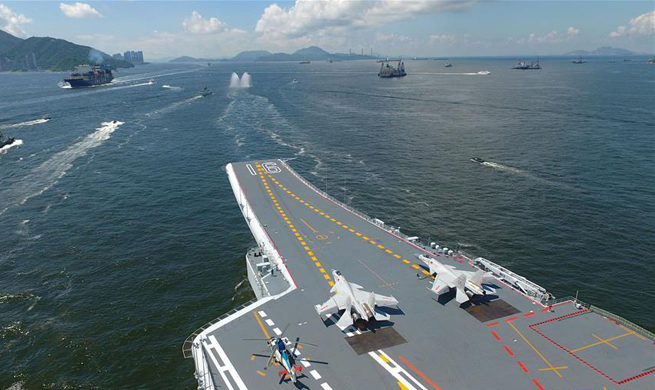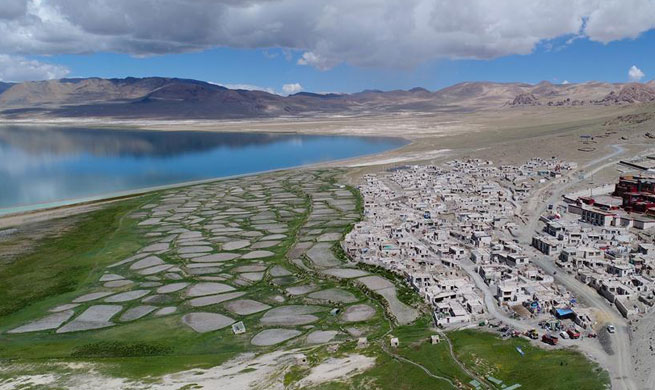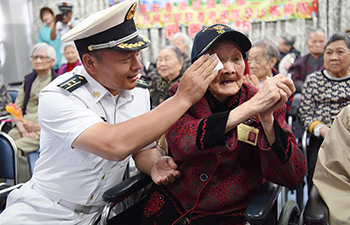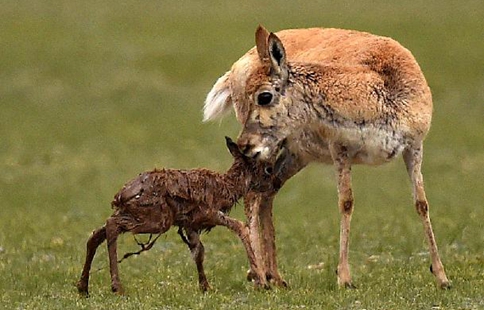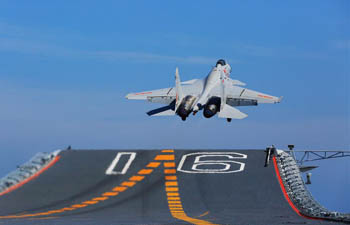BAGHDAD, July 12 (Xinhua) -- Iraqi Prime Minister Haider al-Abadi has announced a victory of military operations to liberate Mosul, three years after the Islamic State (IS) group seized the city and built a so-called caliphate spreading extremism and chaos to the rest of the world.
Meanwhile, a London-based monitoring group said Tuesday that IS leader Abu Bakr al-Baghdadi had been killed. If confirmed, the death of al-Baghdadi would be the latest in a string of fatal blows dealt to the terrorist group.
The extremists captured Mosul, the second biggest city in the country, in weeks in 2014, while the joint forces retook it after a nine-month campaign which has left thousands killed, much of the city ruined and almost 1 million people displaced.
However, the reconciliation may take even more time as sectarian conflicts in Iraq, the civil war in the neighboring Syria, and political struggle in the region created ungoverned spaces which is an ideal breeding ground for terrorism.
SPREAD OF TERRORISM
"After the group lost Mosul and Raqqa, it will pursue a different kind of warfare. They will depend on their bomb makers, suicide car bombs and explosive vests which are very effective and really make the enemy afraid," Iraqi army officer Major Abdullah al-Jubouri said.
"The group can get people prepared to be suicide bombers in Europe and they can cause much more damage. So the fight is moving to the enemy land, including the West," he added.
The establishment of the so-called caliphate by al-Baghdadi in 2014opened a Pandora's box, spreading extremist ideologies worldwide which led to increasing terrorist attacks in several countries.
After the landmark victory in Mosul, the Iraqi government and its U.S.-led coalition against the IS feared that instability in the region could give birth to "IS 2.0."
However, many observers said "IS 2.0" was created after extremists in South Asia, the Middle East, and North Africa pledged allegiance to al-Baghdadi in 2014, making the IS the second terrorist group after al-Qaida in recent decades with ability to launch attacks across the world.
They said despite a disastrous defeat in Mosul or even the death of al-Baghdadi, the IS group could extend its global reach.
For example, the al-Qaida group became even more active after its leader Osama bin Laden was killed by U.S. forces in 2011. Its branch in Yemen, al-Qaida in the Arabian Peninsula, seized almost the whole Abyan province in March 2011 and declared it an Emirate. It also attacked French newspaper Charlie Hebdo in Paris in January 2015, killing 11 people.
Sometimes, the attacks were carried out by terrorists of the IS group, or by individuals who are inspired by jihad, according to IS ideologies, Jubouri said.
"The individuals affected by jihad are very dangerous and difficult to identify. There is no group decision-making process, so they are basically free to take actions," he said.
"Some of the deadly attacks in the West were planned in Europe or in America...They were not asking for instructions," Jubouri said.
"In fact, the IS group's operational technique aimed at giving the IS networks and self-motivated individuals tools and techniques to act independently," he added.
LONG-TERM SOLUTION
Since the military campaign to retake Mosul began on Oct. 17, 2016, some 920,000 civilians had fled their homes, the United Nations Office for the Coordination of Humanitarian Affairs said.
Although the Iraqi government promised a safe and dignified return, nearly 700,000 people are still displaced. They said they are tired of sectarian conflicts, and called for a lasting peace among the Shiite and Sunni Arabs, the Kurds and other minorities.
However, concerns of power struggle are rising. The liberation of Mosul and an imminent win in Raqqa involved a variety of forces from regional and world powers, in addition to armed groups, which are bitterly at odds. Despite that they consider the IS group as an enemy, most of them are hostile to each other.
"The IS group created profound wounds in the society, which means the situation in post-IS era will not be rosy," Iraqi political analyst Ibrahim al-Ameri said.
"There would be a power struggle among the Iraqi factions, mainly including the Shiite-dominated government, Kurds and Sunni Arabs. They will claim the lands they seized in the past three years from the IS, which risks bringing them into conflicts," he said.
Iraq's autonomous region of Kurdistan has declared to hold a referendum on independence in September, a move opposed by Iraq's central government, Turkey, Iran and Syria which believe it threatens their territorial integrity as most of the 30-million Kurds in the Middle East live in the four countries.
Meanwhile, the United States has been arming the Kurdish forces in Syria, which angered its Nato ally Turkey as Ankara believed the Kurdish forces are linked to separatists in its country.
"There is an unfortunate option. We may have a war of all against all, a very unstable situation and continued state crisis. All concerned player fight against each other... a fighting inside the Arab world, and also between the Arab world and outside powers, would engage external players which are trying to make tactical gains," Andrey Kortunov, director general of the Russian International Affairs Council, said at a forum held in Beijing at the end of June.
"It (intervention) will do damage to the long-term solutions. It is the worst possible scenario but unfortunately very likely. If we do not act now, in a couple of years, I think this scenario will become likely," Kortunov said.
"The best solution to me, which you may consider unrealistic at this stage, is to develop a collective security system with enforcement mechanism. Something that is guaranteed by the United Nations Security Council, with mechanism of sanctions in place...I understand it is difficult, but I don't think there is a better solution," he added.
The Iraqi government, the international coalition and the UN Assistance Mission for Iraq have the duty to pursue long-term engagement strategy with a greater focus on national reconciliation that could consolidate peace among Iraqi factions, Ameri said.
"What is often missed from the picture is that we cannot separate issues of security and issues of development... You can fix something, but if the unemployment rate is as high as it is right now among the younger generation...the low level of urbanization...our attempts to fight terrorism will not have lasting impact. It is only temporary," Kortunov said.




